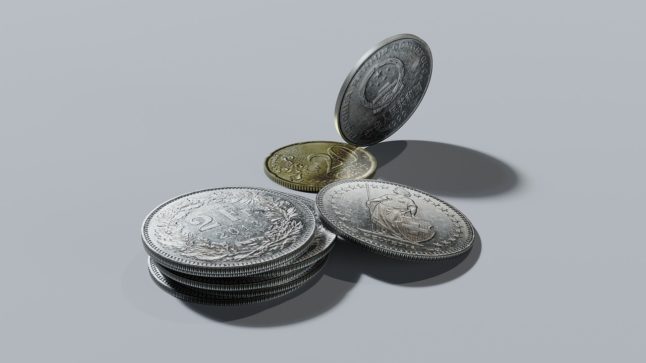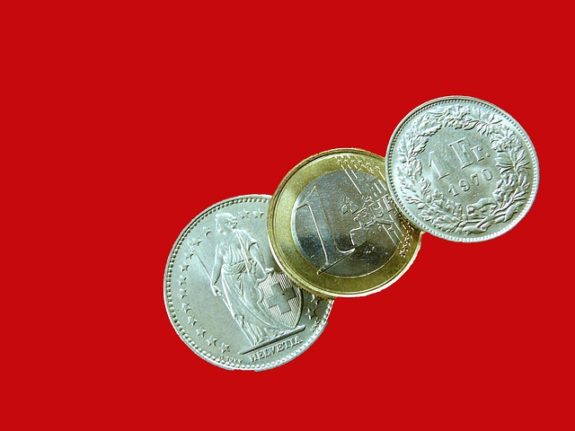The relationship between the franc and the euro can be compared to a dance: at times one leads and the other follows the footsteps, and at other moments the roles are switched.
Looking back to the not-too-distant past, the franc was slightly weaker than the euro at the beginning of 2022, with the reversal occurring later in the year, when the two currencies reached parity in March, and the Swiss franc had continued to strengthen against the single European currency throughout summer and fall.
This meant that residents of Switzerland could travel, and shop in, the eurozone for less money than before.
READ MORE: EXPLAINED: What the weakening euro means for Switzerland’s residents
This was the case even though products and services in the EU became more expensive due to high inflation, while Switzerland’s rate was much lower.
What is the situation now?
In recent weeks, the franc has been appreciating again, though at the moment of this writing it is at the 1:1 parity with the euro.
The surge has been driven by a tense banking situation in the United States, which impacts the euro and then the Swiss franc, as a safe haven.
Given that the franc’s rise (or fall, for that matter) is based more on general monetary and economic forecasts than on exact science, is now a good time to buy euros?
This may be an important issue, especially if you are planning to spend Easter holidays in the eurozone .
According to Sergio Rossi, professor of economics at the University of Fribourg, there is no rush.
“I don’t think the Swiss franc will depreciate again” from where it is now, he said in an interview with Watson news platform.
This means that people who recently converted francs into euros, or will do so soon, “are not going to lose”.
What is the longer-term outlook for the franc-euro ratio?
Even despite the banking crisis that has hit Switzerland in recent days, the forecast for the franc is good.
While there are various forces at play, including whether the European and Swiss central banks will adjust their key rates this week, “in any case, the franc should gain in value by the summer,” Rossi said.
This is undoubtedly good news for residents of Switzerland who are going to holiday abroad, but not so good for the country’s economy as a whole.
The reason is that Switzerland relies heavily on exports — particularly pharmaceuticals, machinery, instruments, and watches. Over 40 percent of the country’s production is sent to its main trading partners in the European Union.
Exports are the backbone of Switzerland’s prosperity and economic growth. But when the franc rises, it makes Swiss products less competitive — that is, too expensive — in eurozone markets.
Throughout the years, the government has tried to keep the franc’s value from rising.
In 2011, the Swiss National Bank (SNB) had capped the franc at 1.2 euros, devaluing the Swiss currency by 8 percent. The central bank took this drastic step by printing billions of francs and using them to buy foreign money, pushing its foreign currency reserves to record highs.
However, in 2015, the SNB abandoned the cap, saying it was no longer justified. The franc’s value immediately soared by around 30 percent.
READ MORE: EXPLAINED: Why does Switzerland want to keep the Swiss franc weak?



 Please whitelist us to continue reading.
Please whitelist us to continue reading.
Member comments